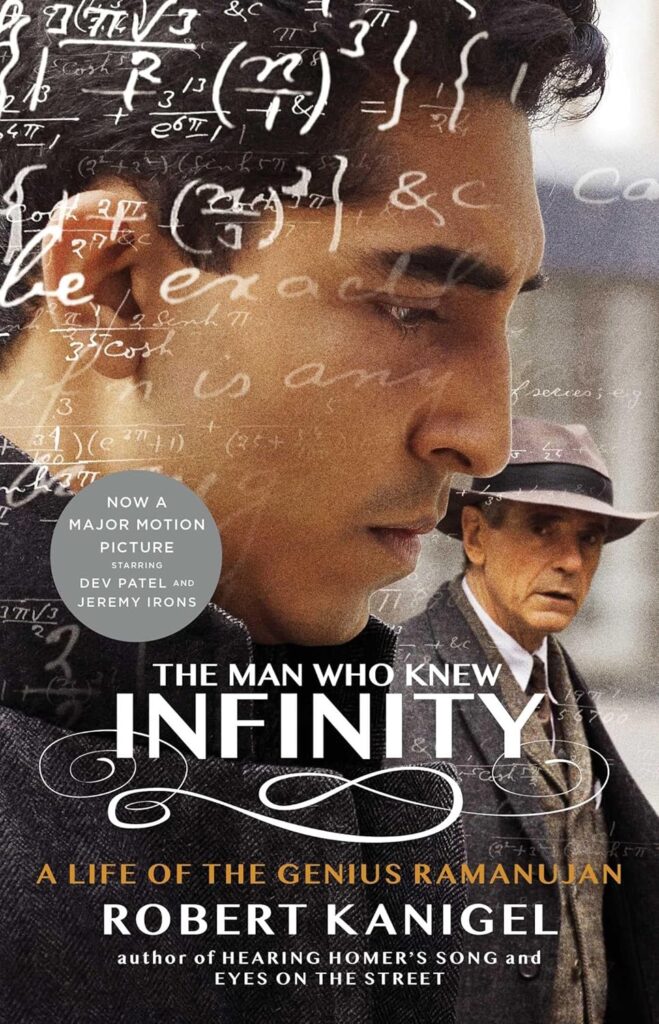Have you ever come across a story that sticks with you long after you’ve put it down, like a melody you can’t shake? That’s what happened to me with The Man Who Knew Infinity, a book that dives into the extraordinary life of Srinivasa Ramanujan, a self-taught mathematical genius from India whose work still influences the world today. What makes Ramanujan’s story so compelling isn’t just his brilliance but the improbable journey he took from the streets of Madras to the hallowed halls of Cambridge. It’s a tale of passion, perseverance, and the clash of cultures—and I couldn’t help but get swept up in it.
1. An Unlikely Genius from Madras
When I first read about Ramanujan’s early life, I was struck by how unassuming his beginnings were. Born in 1887 in Erode, a small town in British India, Ramanujan was the kind of child who seemed destined for an ordinary life—except for one small detail: his mind was anything but ordinary. From a young age, he was captivated by numbers, spending hours poring over math books that most of us would find impossibly dense. But what really grabbed my attention was the fact that Ramanujan was largely self-taught. Without formal training, he started developing his own theories and formulas, many of which were completely unknown to the mathematical community at the time.
What really makes Ramanujan’s story remarkable is how he managed to pursue his passion despite the numerous obstacles he faced. Living in a society that didn’t quite understand or appreciate his genius, Ramanujan struggled with poverty and a lack of support. But instead of giving up, he dug deeper into his work, driven by a seemingly unshakable belief in the beauty of mathematics. There’s something profoundly inspiring about that kind of dedication. It made me wonder—how many potential geniuses are out there, hidden in the shadows, waiting for someone to recognize their brilliance?

2. The Unlikely Partnership: Ramanujan and Hardy
The story of The Man Who Knew Infinity takes a fascinating turn when Ramanujan’s work catches the attention of G.H. Hardy, a prominent mathematician at Cambridge. Hardy was, by all accounts, a man of logic and rigor, someone who believed in the importance of proof and precision. Ramanujan, on the other hand, approached mathematics almost mystically, often stating that his insights came to him in dreams, gifts from the goddess Namagiri. It’s hard to imagine two more different minds coming together, yet somehow, they did.
Their partnership wasn’t without its challenges. Hardy was skeptical of Ramanujan’s work at first, demanding proofs where Ramanujan offered only intuition. But what’s fascinating is how they eventually found a middle ground, with Hardy recognizing the genius in Ramanujan’s unconventional methods. This collaboration resulted in groundbreaking work that continues to influence mathematics today.
As I read about their partnership, I couldn’t help but think about how the best collaborations often come from people who are different, even opposites. It’s a reminder that sometimes, magic happens when two worlds collide.
3. The Clash of Cultures
One of the most poignant aspects of The Man Who Knew Infinity is the cultural clash that Ramanujan experienced in Cambridge. Imagine being a young man from a traditional Brahmin family, suddenly thrust into the cold, formal world of British academia. It’s a world where Ramanujan’s deep spirituality and unconventional methods were met with skepticism and, at times, outright disdain. Yet, Ramanujan persevered, navigating the challenges of this new environment while staying true to himself and his roots.
What really struck me was the loneliness Ramanujan must have felt during his time in England. Away from his family and the familiar sights and sounds of India, he faced not just academic pressure but also the subtle and not-so-subtle prejudices of the time. Despite this, Ramanujan never lost his sense of identity, continuing to draw inspiration from his faith and culture. It’s a testament to his resilience that he was able to produce some of his most important work during this period, even as his health deteriorated in the unfamiliar English climate.
Reading about Ramanujan’s struggles made me reflect on how difficult it can be to stay true to oneself in the face of overwhelming pressure to conform. How many of us would have the strength to do what Ramanujan did, to hold on to our beliefs and values when the world seems to be pushing us in the opposite direction?
4. Legacy Beyond Numbers
Ramanujan’s story is about so much more than just numbers and formulas. It’s about the human spirit, about how passion and perseverance can overcome even the most daunting obstacles. What’s truly remarkable about Ramanujan is that despite his lack of formal education and the immense challenges he faced, he made contributions to mathematics that continue to resonate today. His work on infinite series, continued fractions, and number theory opened up new avenues of thought and laid the groundwork for future discoveries.
But beyond his mathematical achievements, Ramanujan’s life is a powerful reminder of the importance of nurturing talent, wherever it may be found. How many more Ramanujans might be out there, waiting for someone to recognize their potential? It’s a question that has stayed with me, one that makes me wonder about the untapped brilliance that exists in the world.
Conclusion: What Can We Learn from Ramanujan’s Journey?
As I reflected on Ramanujan’s incredible journey from the dusty streets of Madras to the hallowed halls of Cambridge, I was left with a question that’s both simple and profound: What does it take to recognize and nurture genius? Ramanujan’s story is a testament to the power of belief—his own belief in his work and the belief that others eventually had in him. It’s a story that challenges us to think about how we view talent, how we support it, and how we can ensure that the next great mind doesn’t go unnoticed. How might we better recognize and support the hidden geniuses in our own lives?




